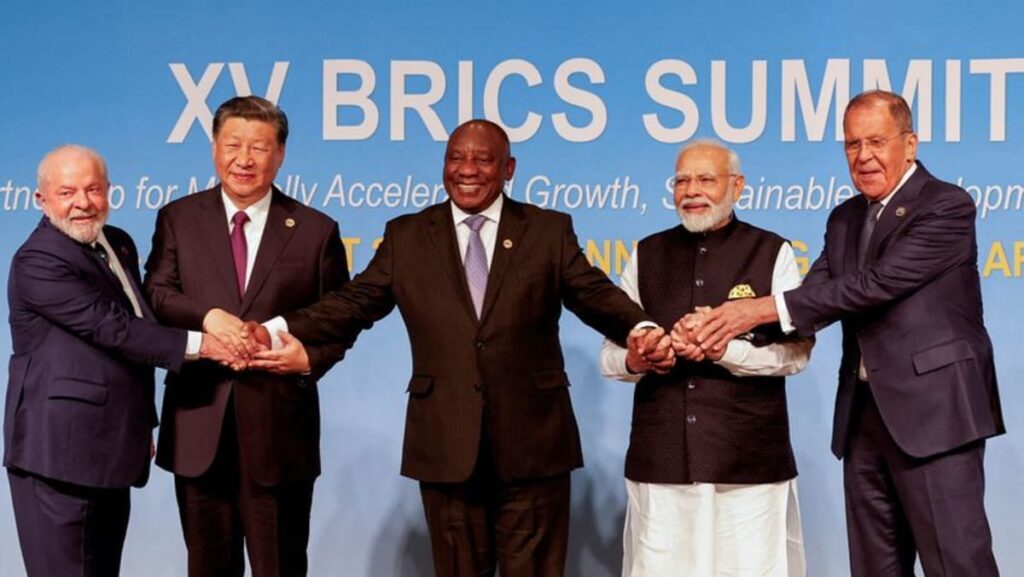Meanwhile, Dr Alan Chong, Senior Fellow at Singapore’s S Rajaratnam School of International Studies, described BRICS as an “alternative leadership circuit when it comes to global governance”.
Taking the example of Malaysia’s interest to join the grouping, Dr Chong said that it can “be a way to get (the country’s) foreign policy lifted up in a very exceptional way”.
He added: “Now, (Mr Anwar) is trying to use this international spotlight that he’s quietly cultivated all these years to good effect for Malaysia. And why not? He’s managed to resuscitate the stalled special relationship with China under the Belt and Road initiative, which is all good.”
POSSIBLE OVERDEPENDENCE ON CHINA
However, Mr Bhima warns of the implications of ASEAN countries joining BRICS, believing that it may give China a bigger role in the United States-China trade war as well as the conflict in the South China Sea.
“Apart from that, in a geopolitical context, countries in ASEAN will avoid criticising China’s escalation of the conflict in the Taiwan Straits as well as sensitive issues such as Xinjiang/Uighur,” said Mr Bhima.
Beyond that, Mr Bhima said that there may be concerns of an overdependence on China in various ways, especially from an economic perspective.
“It is actually very risky, because China is experiencing slowing domestic demand for at least the next two to three years and still struggling with its property crisis.
“China’s economy, which is expected to slow down, will also have an impact on the economic growth of countries in the ASEAN region,” he said.
Dr Liow, meanwhile, said that politics within BRICS itself could prove to be a hindrance.
“There are major obstacles as well, like the membership of countries whose own bilateral relationships face challenges, like China and India, or Saudi Arabia and Iran. Politics can easily come into the picture in a way that makes the potential (of the grouping) difficult to realise,” he said.
While some Southeast Asian countries have expressed interest to join BRICS, there are others that have kept mum on the topic.
Mr Bhima, the economist, believes that it boils down to the relationship between the countries and those within the BRICS bloc.
“Singapore feels that without joining BRICS, it has already become an investment and financial hub for many Chinese companies. (It) may also be concerned about the duplication of bilateral and multilateral agreements with China and other BRICS countries.
“Meanwhile, the Philippines is more influenced by the issue of the South China Sea conflict, so it is keeping its distance from China,” said Mr Bhima.
Dr Chong, the Senior Fellow at RSIS, said that while China may hold an “informal” voting power within the bloc, it would hope that “its association with Russia will not translate into a negative position within BRICS.”
However, Mr Bhima believes that the bloc’s appeal will continue to see to its expansion for the economic benefits it may potentially yield.
“Many countries will be interested in joining BRICS if major countries such as China and India offer real investment packages, lower various export barriers to BRICS countries, increase the knowledge exchange event between political party leaders, and provide more certainty about mega-project loans that are in line with the national agenda,” he said.
